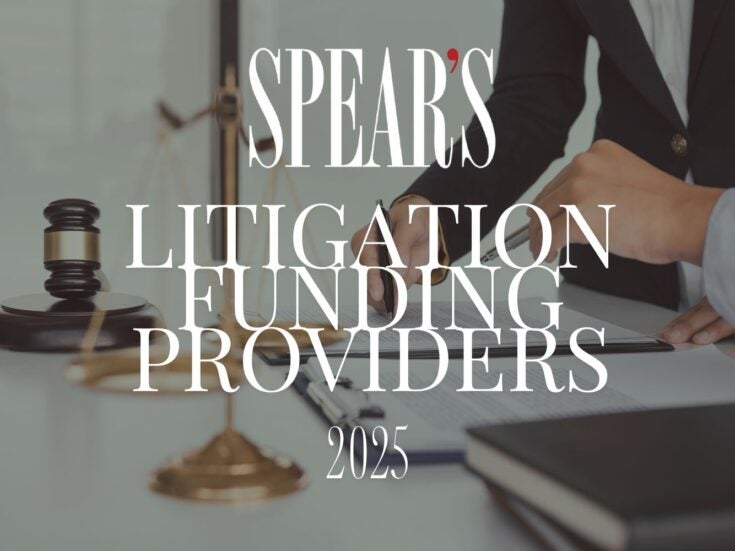
On February 8, 2012, the IRS released long-awaited proposed regulations REG-121647-10 (the “Proposed Regulations”) containing rules on information reporting and withholding under the Foreign Account Tax Compliance Act (“FATCA”) provisions introduced as part of the Hiring Incentives to Restore Employment Act.
Intergovernmental Approach to FATCA and International Tax Compliance
On the same day, the US Treasury released a joint statement with the governments of the UK, France, Germany, Italy, and Spain announcing an intergovernmental framework for FATCA implementation and international tax compliance. Under this approach, “Fatca Partner” countries will enter into agreements with the US to collect information from financial institutions and automatically forward this to the IRS.
In exchange, FFIs organized in these jurisdictions will not be: (i) subject to withholding under FATCA; (ii) required to enter into separate FFI Agreements with the IRS; (iii) required to withhold on “passthru” payments to other FFIs organized in Fatca Partner countries; or (iv) required to close the accounts of recalcitrant accountholders.
Because this approach should significantly reduce the costs of US tax compliance for entities within these countries, and will allow these “Partner” countries to obtain data about accounts held by their taxpayers in the US, other jurisdictions both within and outside the EU will have an incentive to enter into such agreements. Therefore, this framework may ultimately become the foundation for an automatic exchange of tax information between the US, the EU, and other OECD countries.
Highlights of the Proposed Regulations
The Proposed Regulations will come as a welcome relief to many non-US financial institutions (“FFIs”), as they allow additional time for FFIs to implement procedures to comply with this controversial new US regime and contain a number of other new provisions that should simplify the compliance effort and reduce costs; however, a number of significant issues remain unresolved.
Expanded Transitional Relief
The previous guidance provided for phased implementation of reporting by FFIs of information with respect to US accounts. The Proposed Regulations expand and modify the phased implementation timeframe.
> In 2014 (for the 2013 calendar year), only the name, address, TIN, account number and account balance must be reported. The Proposed Regulations extend this phase-in period and would require reporting on income beginning in 2016 (for the 2015 calendar year) and reporting on gross proceeds beginning in 2017 (for the 2016 calendar year).
> The Proposed Regulations provide that withholding will not be required on foreign passthru payments until January 1, 2017; however, participating FFIs will be required to annually report the aggregate amount of certain payments to each nonparticipating FFI.
> Although the statute requires that every member of an FFI’s expanded affiliated group also be a participating FFI, the Proposed Regulations allow a two-year transition period, until January 1, 2016, during which time a participating FFI may have affiliates or branches in jurisdictions that prohibit reporting to the IRS provided that such affiliates or branches agree to perform due diligence to identify US accounts, retain certain records, and not open new accounts that would be US accounts or accounts for nonparticipating FFIs. Such affiliates would be treated separately for US withholding tax purposes and would be required to identify themselves as nonparticipating FFIs.
> The statute provided that no withholding would be required with respect to payments under any obligation (e.g., debt, life insurance, annuities and derivative contracts) outstanding on March 18, 2012 (“Grandfathered Obligations”). The Proposed Regulations have expanded the scope of this exemption, and would not require withholding with respect to payments under any obligation outstanding on January 1, 2013.
Modified Due Diligence and Compliance Procedures
> The Proposed Regulations increase reliance on existing customer intake and KYC/AML
procedures, particularly with respect to new accounts.
> The background to the Proposed Regulations states that the intent is that FFIs that comply with the due diligence requirements outlined in the Proposed Regulations will be treated as compliant and will not be held to a strict liability standard, placing significant importance on an FFI’s due diligence procedures.
> Preexisting individual accounts with a balance or value of US$50,000 or less (US$250,000 for certain cash value insurance or annuity contracts) and preexisting entity accounts with a balance or value of US$250,000 or less are exempt from review.
> Accounts with a balance or value in excess of these amounts but less than US$1 million will be subject only to review of electronically searchable records (i.e., information that can be accessed using a database search).
> Manual review of paper records (limited only to certain categories of paper records) will only be required where the account balance exceeds US$1 million – an increase from the previous US$500,000 threshold.
> The Proposed Regulations abandon the concept of the “private banking test” introduced in previous guidance, and do not require FFIs to make a distinction between private banking and other accounts.
> If “enhanced review” beyond a review of electronically searchable records is required because the account value exceeds US$1 million, inquiry as to a relationship manager’s actual knowledge of indicia of US ownership will be required, and FFIs will need to implement appropriate policies and procedures to ensure compliance with this requirement.
> Verification of compliance through third-party audits will not be mandated, and FFIs may generally rely on periodic internal reviews rather than external audits.
Trusts and Trust Companies
> Trust companies will be FFIs.
> It appears that, in the view of the IRS, trusts that engage in investing, reinvesting, or trading of securities should themselves be considered FFIs. Unlike previous guidance, the Proposed Regulations contain no exception for “small family trusts.”
> It appears, however, that many trusts may qualify for deemed-compliant status and potentially avoid the need to enter into separate FFI Agreements provided that they meet the criteria to be treated as “owner-documented” FFIs.
> Such owner-documented FFIs will generally be required to provide withholding agents and/or participating FFIs with which they hold accounts with a withholding certificate, annual owner reporting statements, and documentation for each individual, specified US Person, and owner- documented FFI, exempt beneficial owner, or NFFE that directly or indirectly holds an interest, although other documentation may be substituted for the owner reporting statement in the case of a grantor or simple trust.
> In the alternative, owner-documented FFIs may provide an auditor’s letter from an independent and unrelated accounting or law firm that has a location in the US certifying that that firm has reviewed the FFI’s documentation with respect to its owners, and that no owner that owns a direct or indirect interest is a nonparticipating FFI, specified US Person, or passive NFFE with any substantial US owners.
> The Proposed Regulations set out rules for determining when a US person will be treated as having a beneficial interest in a trust, including based on attribution and constructive ownership rules, to determine whether a US grantor or beneficiary of a non-US trust is a substantial US owner of a foreign entity.
> Trusts with US grantors or beneficiaries must be classified as either “grantor” or “non-grantor” trusts, as this classification will impact the attribution of ownership to US Persons for the purposes of these rules.
> In the context of a discretionary trust, the Proposed Regulations clarify that attribution is to be based on the pattern of distributions over the prior year (subject to a US$5,000 de minimis threshold).
Charitable Organizations
> Non-US charities that either (i) have been recognized by the IRS as US tax exempt organizations or (ii) obtain an opinion of US counsel that they are equivalent to a US exempt organization will not be considered FFIs.
> If a non-US charity cannot meet this test, it may nevertheless be a “deemed-compliant” FFI if it can provide a letter from local counsel that it meets certain requirements designed to ensure it has charitable purposes.
> In the two instances above, the charity will not have to enter into an FFI Agreement, but must certify its status and provide copies of the relevant opinions of counsel to avoid withholding.
Expanded Categories of Deemed-Compliant FFIs
> The Proposed Regulations expand the categories of deemed-compliant FFIs, and expand the categories of non-US retirement plans excepted from the application of the FATCA rules.
> Certain small local banks are excluded, and the category of “local FFI” has been somewhat expanded from previous guidance. To qualify, amongst other requirements, an FFI or FFI group must have no fixed place of business outside its country of organization, it must be subject to reporting or withholding requirements in its country of organization, and 98% of the accounts maintained by the FFI must be held by residents of the FFI’s country of organization (although an FFI organized in an EU Member State may treat residents of other Member States as residents of the country of incorporation).
> The Proposed Regulations provide a separate deemed-compliant category for FFIs regulated as investment funds under the law of the country of organization, and for which each distributor of interests in the fund is either a participating FFI, a registered deemed-compliant FFI, a non- registering local bank (i.e., a bank that operates solely in its country of organization and whose affiliated group holds assets of US$500 million or less), or a “restricted distributor.”
Expanded Categories of “Excepted NFFEs”
> Certain “active” entities, defined to mean those with: (i) less than 50% passive income or (ii) assets less than 50% of which produce passive income will not be subject to withholding.
> Payments to certain partnerships and trusts that have entered into agreements with the IRS under which they have assumed responsibility for US withholding, known as Withholding Partnerships and Withholding Trusts will not be subject to withholding.
Issues Requiring Further Clarification
> There may ultimately be additional categories of deemed-compliant FFI not addressed in these regulations.
> Additional clarification is needed regarding the application of the “passthru” payment rules. For example, the IRS is considering whether safe-harbor or rounding conventions might be appropriate, and intends to issue guidance to prevent US and territorial financial institutions from acting as “blockers” with respect to foreign passthru payments and reporting.
> The IRS is also considering rules related to the allocation of gross proceeds to a partner, beneficiary, or owner of a flow-through entity.
> Finally, the larger question remains as to whether the “FATCA partner” approach will prove attractive to offshore financial centers and emerging markets, as well as other countries within the EU and the OECD.
Richard Cassell (London) richard.cassell@withersworldwide.com +44 (0)20 7597 6173







